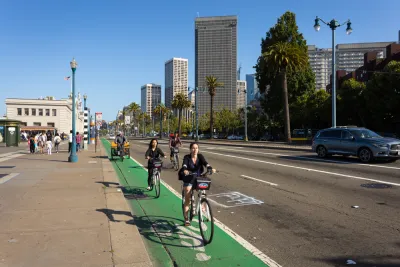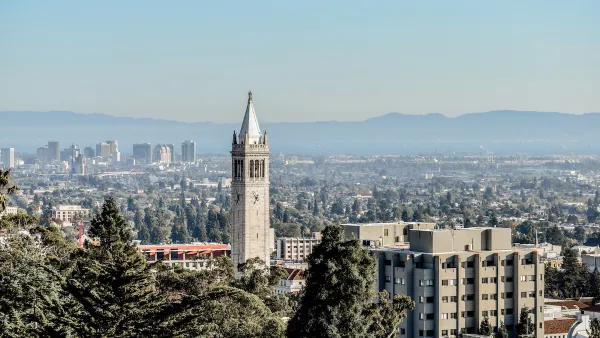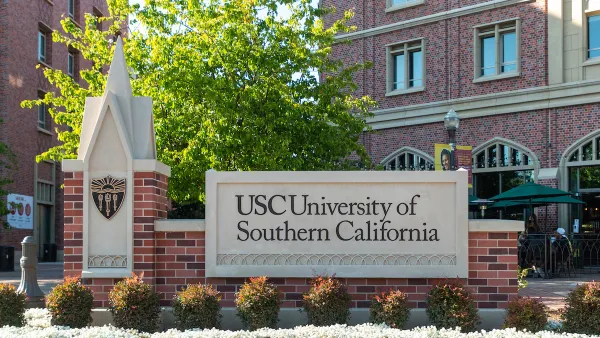In another blow to California’s Environmental Quality Act, a new analysis shows that many green transportation projects are delayed or halted by an expensive, onerous review process and the threat of lawsuits.

A report from planning think tank SPUR found that dozens of sustainable transportation projects in California face years of “costly, time-consuming analysis and lawsuits on the basis that they are bad for the environment” thanks to the state’s Environmental Quality Act (CEQA), report Jeff Elder and Adam Shanks. The law, intended to require developers and agencies to disclose potential environmental effects of proposed projects, is “facing growing criticism for enabling lawsuits unrelated to the environment, like the one that nearly caused UC Berkeley to rescind thousands of undergraduate applications earlier this year.”
The SPUR report assesses the impact of a 2020 bill, SB 288, that temporarily exempted certain green transportation projects from CEQA, preventing head-scratchers like San Francisco’s four-year pause on bike lane installation as it navigated environmental lawsuits. With SB 288 set to expire at the end of this year, transit agencies across the state are worried they’ll once again be subject to such lawsuits.
A new bill proposed by Senator Scott Wiener would extend SB 288 and continue to exempt light rail, bus, pedestrian, and bike projects until 2030. “The SPUR report identifies 15 projects that benefited from SB 288, seven of which were in San Francisco. They include the transit-only lanes on Seventh and Eighth streets in SoMa, the Evans and Williams bike lanes in the Bayview and the “road diet” to improve safety on South Van Ness Avenue.”
\According to Wiener, even though just 1 percent of projects face CEQA lawsuits, “the constant fear and threat of lawsuits triggers more and more expensive and time-consuming CEQA processes so that it takes much longer and is more expensive than it would have been otherwise.”
FULL STORY: Green transportation projects face costly, time-consuming environmental reviews

Analysis: Cybertruck Fatality Rate Far Exceeds That of Ford Pinto
The Tesla Cybertruck was recalled seven times last year.

National Parks Layoffs Will Cause Communities to Lose Billions
Thousands of essential park workers were laid off this week, just before the busy spring break season.

Retro-silient?: America’s First “Eco-burb,” The Woodlands Turns 50
A master-planned community north of Houston offers lessons on green infrastructure and resilient design, but falls short of its founder’s lofty affordability and walkability goals.

Test News Post 1
This is a summary

Analysis: Cybertruck Fatality Rate Far Exceeds That of Ford Pinto
The Tesla Cybertruck was recalled seven times last year.

Test News Headline 46
Test for the image on the front page.
Urban Design for Planners 1: Software Tools
This six-course series explores essential urban design concepts using open source software and equips planners with the tools they need to participate fully in the urban design process.
Planning for Universal Design
Learn the tools for implementing Universal Design in planning regulations.
EMC Planning Group, Inc.
Planetizen
Planetizen
Mpact (formerly Rail~Volution)
Great Falls Development Authority, Inc.
HUDs Office of Policy Development and Research
NYU Wagner Graduate School of Public Service




























